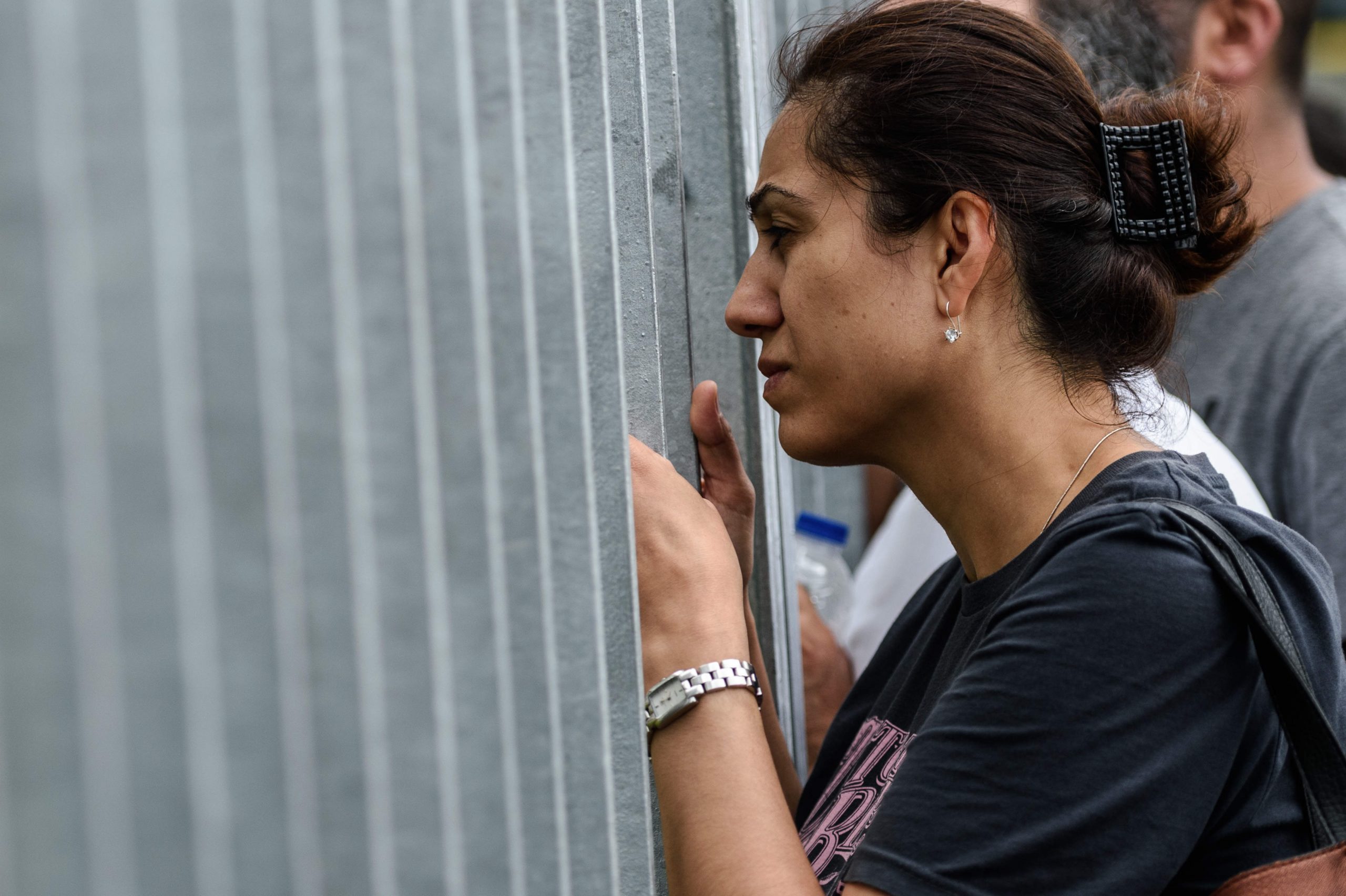
Recently, we have seen Turkey plunge into a full-blown crisis, with its terrifying post-coup crackdown. More than 10,000 people are currently in detention, including soldiers, police, judges and teachers.
Amnesty International’s team in Turkey has gathered horrific evidence of torture, rape, sexual abuse and beatings of detainees in official and unofficial places of detention. Two lawyers in Ankara told us that detainees had witnessed detained senior military officers being raped with a truncheon by police officers.
Our researchers on the ground also heard numerous reports of detainees being held in stress positions for over 48 hours, denied food and water and being denied access to their family or lawyers.
One lawyer working at the Caglayan Courthouse in Istanbul told Amnesty that some of the detainees were extremely emotionally distressed. One detainee attempted to throw himself out of a sixth story window and another repeatedly slammed his head against a wall.
President Erdoğan has remained conspicuously silent over these abuses. Is he condoning this torture and ill-treatment through his silence?
To be sure, public security is an understandable priority in Turkey, but no circumstances can ever justify the level of human rights abuses we are now witnessing.
This crackdown is of a scale not witnessed in Turkey since the dark days of martial law imposed after the military coup in 1980.
The Turkish government must now show the political resolve to stamp out these abuses and to follow the rule of law in its investigations and maintenance of public security. Independent monitors, as well as lawyers, should be granted immediate access to the detention centres and family members should be informed of the whereabouts of their loved ones. Transparency and openness are urgently needed. Blocking such requests only fuels suspicions that terrible abuses are indeed happening inside the detention facilities.
The arbitrary arrests we have seen, in most cases with no charges given, are grave violations of the right to a fair trial, which is enshrined in both Turkey’s national and international law.
There now prevails an extreme climate of fear and instability across Turkey, where to criticise the government’s actions or speak out against violations now carries with it the risk of being labelled “pro-coup”.
Arrest warrants issued for dozens of journalists are part of a brazen purge based on political affiliation. Six of these journalists are currently detained. Rather than stifling press freedom and intimidating journalists into silence, the Turkish authorities must allow the media to do their work and end this oppressive clampdown on free expression.
The government has set itself on a perilous course since declaring a state of emergency on 20 July, including extending the amount of time detainees can be held without charge from four to 30 days. And shutting down schools, NGOs and media centres.
It’s absolutely vital that the authorities take some time for calm reflection and ensure they can discern between criminal acts and legitimate criticism, no matter how uncomfortable it may make President Erdoğan.
These are truly dangerous times for human rights in Turkey. And to make matters worse, President Erdoğan has threatened a return of the death penalty. The death penalty was abolished in 2004 as part of a move for Turkey to gain entry into the European Union. If it is reinstated, Turkey will disqualify itself from membership or future membership of the EU.
Amnesty welcomes the fact that the UK Government has stressed the importance of the Turkish authorities maintaining the rule of law and called for the Turkish authorities to reject a return to the death penalty.
In a recent phone call, Theresa May underlined the UK’s full support for Turkey’s democratically-elected government and institutions and said there was no place for military intervention in politics. Amnesty hopes that she will also publicly demand that the authorities immediately halt the human rights crackdown and allow immediate access to independent monitors and lawyers into places of detention.
Kristyan Benedict is Amnesty International UK’s Crisis Response Manager





